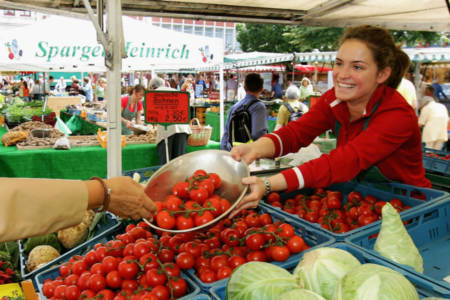Reposted from Inside Climate News
A sweeping study of the food chain, from farm to table, singles out choices that can cut greenhouse gas emissions. The biggest impact: switch to a plant-based diet.
When it comes to the climate impacts of our diet, it pays to be particular.
One bowl of rice can have six times the climate impact of another. Beer from a bottle can result in more greenhouse gas emissions than beer from a keg. One cup of coffee’s carbon footprint may be 15 times bigger than another’s. Those are some of the findings in a sweeping study, published Thursday in the journal Science, that looked at the complexities of the world’s food and agricultural systems to determine the environmental impacts of food production.
It found that if the world’s consumers want to put a genuine dent in greenhouse gas emissions from food production, they should make one choice above all: Switch to a plant-based diet.
The world’s food and agricultural systems produce more than a quarter of man-made greenhouse gas emissions, the study notes, and nearly two-thirds of those emissions are linked to animal products. If consumers switched to a plant-based diet—or even cut their consumption of animal products in half—the shift could have substantial environmental benefits.
That’s especially true for Americans, who consume about three times more meat per person than the rest of the world.
Read more here.




